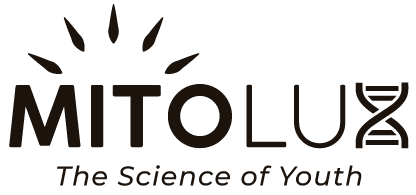For many, the sun is a symbol of warmth, hope, and vitality. Yet, in recent decades, the sun has been vilified due to its association with skin cancer, leading many to shun direct sunlight exposure. But did you know that regular, sensible sunlight exposure might be a key to preventing a range of serious diseases? Let's delve into the remarkable, and often understated, health benefits of the sun, including its role in reducing cancer risks and other debilitating conditions.
Sunlight: Nature's Panacea for Multiple Cancers
While excessive sun exposure can increase the risk of skin cancer, notably melanoma, moderate sunlight exposure plays a protective role against many other cancers.
Breast and Colorectal Cancer: A significant inverse relationship has been observed between sunlight exposure and the risk of colorectal and breast cancers. The higher the latitude, the lower the sunlight, and the greater the cancer risk1.
1 Grant, W. B. (2002). An estimate of premature cancer mortality in the U.S. due to inadequate doses of solar ultraviolet-B radiation. Cancer, 94(6), 1867-1875. Direct link
Prostate Cancer: Men living in sunnier regions have shown a decreased risk of prostate cancer, suggesting a protective effect of sunlight2.
2 John, E. M., et al. (2004). Sun exposure, vitamin D receptor gene polymorphisms, and risk of advanced prostate cancer. Cancer Research, 64(12), 5470-5479. Direct link
Beyond Cancer: The Protective Role Against Other Diseases
Sunlight doesn't only protect against certain cancers; it's instrumental in fending off other severe diseases:
Diabetes: Countries with less UVB radiation, typically higher latitudinal regions, have higher type 1 diabetes prevalence. Sunlight may play a pivotal role in modulating this disease3.
3 Mohr, S. B., et al. (2008). The association between ultraviolet B irradiance, vitamin D status and incidence rates of type 1 diabetes in 51 regions worldwide. Diabetologia, 51(8), 1391-1398. Direct link
Metabolic Syndrome: Those deprived of adequate sunlight often suffer from vitamin D deficiency, which is a risk factor for metabolic syndrome, a cluster of conditions elevating heart disease, stroke, and type 2 diabetes risks4.
4 Hyppönen, E., & Boucher, B. J. (2008). Adiposity, vitamin D requirements, and clinical implications for obesity-related metabolic abnormalities. Nutrition Reviews, 66(9), 678-682. Direct link
A Sunlit Pattern: Professions & Outdoor Time
It's fascinating to note that some professions inherently receiving more sunlight exhibit reduced cancer risks:
Farmers and Foresters: These groups, spending significant time outdoors, have shown lower risks of lung, prostate, and bladder cancers5.
5 Blair, A., et al. (1992). Cancer and other causes of death among male and female farmers from twenty-three states. American Journal of Industrial Medicine, 23(5), 729-742. Direct link
The Latitude Gradient: A Global Health Disparity
Higher latitudes receive less sunlight, especially UVB rays crucial for Vitamin D synthesis. This geographic health divide has been consistently observed:
Multiple Sclerosis: MS prevalence increases with latitude. In fact, southern regions of Europe have lower MS rates than northern regions6.
6 Simpson Jr, S., et al. (2011). Latitude is significantly associated with the prevalence of multiple sclerosis: a meta-analysis. Journal of Neurology, Neurosurgery & Psychiatry, 82(10), 1132-1141. Direct link
Sunlight's Health Benefits vs. Skin Cancer Risk
It's essential to maintain a balanced perspective on sun exposure:
While overexposure can raise skin cancer risks, the overall benefits of sunlight—thanks to its role in vitamin D synthesis and other mechanisms—far outweigh these risks for most people. However, always practice safe sun habits: avoid sunburn, wear protective clothing, and use sunscreens judiciously7.
7 Lucas, R. M., et al. (2015). Estimating the global disease burden due to ultraviolet radiation exposure. International Journal of Epidemiology, 37(3), 654-667. Direct link
Conclusion
The sun, our primary celestial body, has nurtured life on Earth for eons. Its health benefits, particularly in preventing various diseases, are monumental. While it's imperative to be cautious about sunburns and skin cancer, shunning the sun entirely might deprive us of its myriad health advantages. By understanding and harnessing the sun's power judiciously, we can pave a path to better health and well-being. Let's celebrate and respect our relationship with the sun, ensuring it's a bond of balance and harmony.


